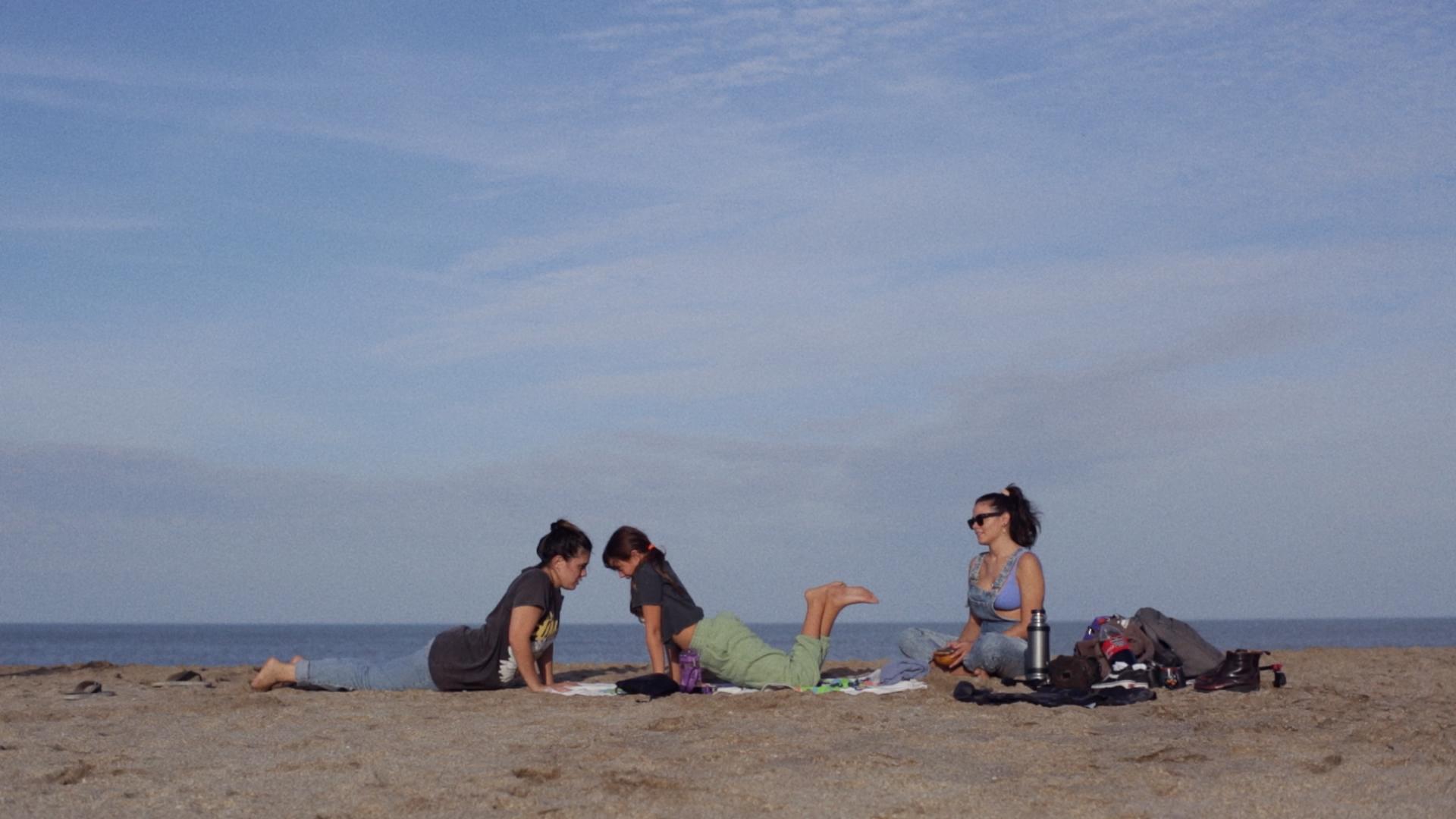Mailin
Mailin
VERDICT: An Argentinian woman's struggle to process her traumatic history of childhood sexual abuse becomes a disturbingly beautiful fairy tale in the hands of documentary maker and visual artist María Silvia Esteve.
Transforming real-life trauma into a kind of avant-garde horror film, María Silvia Esteve’s remarkable documentary Mailin inhabits a mesmerising liminal zone between factual reportage and high-art aesthetics. The Argentinian director is back in IDFA this week, the festival where her debut feature Sylvia (2018) premiered, with a film that should grab attention for its formal daring as much as for its timely, angry, emotionally raw content. A true auteur with a sideline in immersive visual art, Esteve also takes solo or shared credit here as producer, screenwriter, cinematographer, editor, score composer and sound designer.
Esteve’s subject, and key narrator/collaborator, is Mailin Gobbo, a thirtysomething Argentinean woman who spent years living with crushing shame and depression after she was sexually abused as a child by Carlos Eduardo José, a Catholic priest and family friend who worked at her school. In 2017, after being stonewalled by church authorities, who protected José from his accusers and even continued paying his salary, she finally reported his crimes to the police. Esteve punctuates her film with footage from the dramatic court case that followed, though she is much more interested in the adult Mailin’s therapeutic soul-searching and ongoing recovery than in the specific abuse case.
Esteve spent years building trust with Mailin for this documentary, and their close creative relationship pays off in the intimate, confessional tone. Framing the narrative as a dark fairy tale about a “beast” who disguised himself as a lamb, Esteve opens with Mailin calmly re-telling her life story to her five-year-old daughter Ona. The director approaches these delicate events from a non-linear angle, peeling away layers of protective amnesia, piecing together a shattered mosaic of memory, zooming in on grainy, glitchy, slow-motion video clips for ominous clues and early warnings. Mailin’s mother Monica, sister Michelle and childhood friend Kichi also share their testimonies via archive clips and contemporary interviews.
The boldest stylistic decision Esteve makes is couching what might have been a bleak, harrowing abuse story in visually rich language that is inventive, original, highly cinematic and often incongruously, disturbingly beautiful. Alternating between monochrome and colour, she interweaves factual background material with recurring imagery of spooky forests, dimly lit roads, and pulsing circular portals that come to resemble gateways into Hell. Much of these motifs are pure abstract act, and indeed the director has used similar symbols in her immersive artworks and short films. Even so, they prove very effective here, lending Mailin’s battle with her abuser the nightmarish, dread-filled texture of a non-fiction horror film. Which on one level, of course, it is.
Mailin is clearly not a conventional crime-case documentary. Esteve’s highly stylised approach lacks journalistic rigour, and sometimes becomes a little too diffuse and dreamy for its own good. Locations, timelines and character details remain fuzzy throughout. Events seem to loop and drift for much of the story’s mid-section, which in fairness may be an attempt to mirror the recurring, haunting nature of unresolved trauma. At times this collaborative art project feels like an act of catharsis for Mailin, film-making as therapy.
For viewers unfamiliar with Mailin’s court case, there are several dramatic twists and reversals during the film’s final act which lend extra emotional bite to her heroine’s ongoing quest for justice, or at least closure. But Esteve never makes her a powerless victim, more like a bruised but defiant survivor, seizing control of the chaotic narrative of her life.
Director, screenwriter, editing: María Silvia Esteve
Cinematography: María Silvia Esteve, Andrea Cabrera
Producers: María Silvia Esteve, Alejandra López, Cristina Hanes, Radu Stancu
Sound Design: María Silvia Esteve, Filip Muresan
Music: María Silvia Esteve, Ieronim Pogorilovschi, Codrin Lazar
Production companies: Hana Films (Argentina), Ikki Films (France), deFilm (Romania)
World sales: The Party Film Sales
Venue: IDFA (International Competition)
In Spanish
89 minutes

